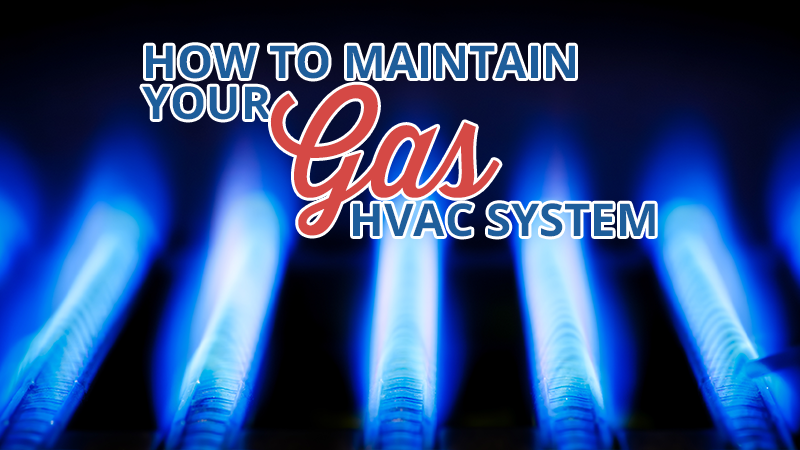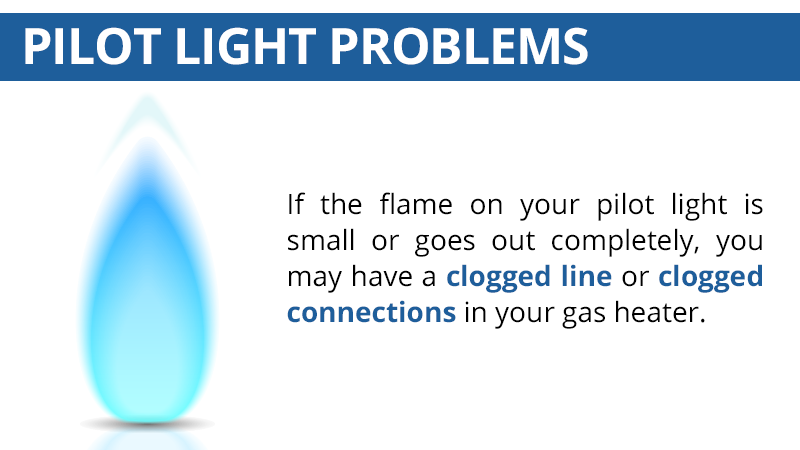If you have a gas HVAC system, you know that it has many benefits, such as energy efficiency and fewer greenhouse gas emissions. You might even think that your gas heating system is maintenance free. While it does typically require less maintenance than oil burning furnaces, your gas HVAC system should be serviced annually. Follow these tips for handling problems that may arise.
Weak or Poorly Functioning Pilot Light
If the pilot light on your gas heater is weak, flickering, or goes out entirely, your heater needs immediate attention. Here are the most common reasons for pilot light problems.
Improper Air Mixture: Healthy pilot lights have a steady blue flame. Natural gas flames may have a slight yellow tip to the flame. If your flame is yellow, flickers or makes excessive noise, there is likely too much or too little air in the gas mixture. Shut off the gas supply and call your HVAC contractor at Metro Comfort Systems to adjust the air flow in the gas line.
Clogged Lines: If the flame on your pilot light is small or goes out completely, you may have a clogged line or clogged connections in your gas heater. That means it is time to call in the professionals to give your system a proper cleaning. Do not try to rectify clogged lines yourself. Your HVAC contractor has the tools and expertise to do this safely.
Out of Gas: Before you assume there is a problem with your gas heater, always check that you have gas in the tank. Calling the HVAC contractor in the middle of the night to repair a system that is out of fuel can be both expensive and embarrassing. Make it a habit to check the fuel level first whenever you have problems with your heating system.
Rotten Egg Odor
If you notice a distinct odor of sulfur or rotten eggs coming from your gas heater, don’t ignore it. Both propane and natural gas are odorless gasses, but gas companies add mercaptan that emits the rotten egg scent to alert you when you have a leak. If you have a gas leak, follow these steps:
- Do not light candles, cigarettes or anything that can cause a spark.
- Shut off the gas supply.
- Check the fuel level in the tank. If your tank is almost empty, the odor you are smelling is due to concentrated mercaptan that is released as your fuel supply depletes. Call for a refill of the tank. If you still have plenty of gas, proceed to step four.
- Open the windows in your home and let any odor of gas dissipate.
- Mix one tablespoon of dish detergent in one cup of water and put it in a spray bottle. Spray the solution onto the connections in your gas line.
- Turn the gas supply on and look for bubbles along the gas line. Escaping gas will cause the solution to form bubbles alerting you to a gas leak.
- Tighten the connectors or call your HVAC contractor to correct the problem. If you cannot locate the leak, do not use your heater until your HVAC contractor has inspected the furnace to determine the cause of the gas odor.
Regular maintenance and yearly cleaning will keep your gas heater running smoothly and avoid problems with gas leaks or faulty pilot lights. If your gas HVAC system is due for a checkup, contact the technicians at Metro Comfort Systems.



Recent Comments